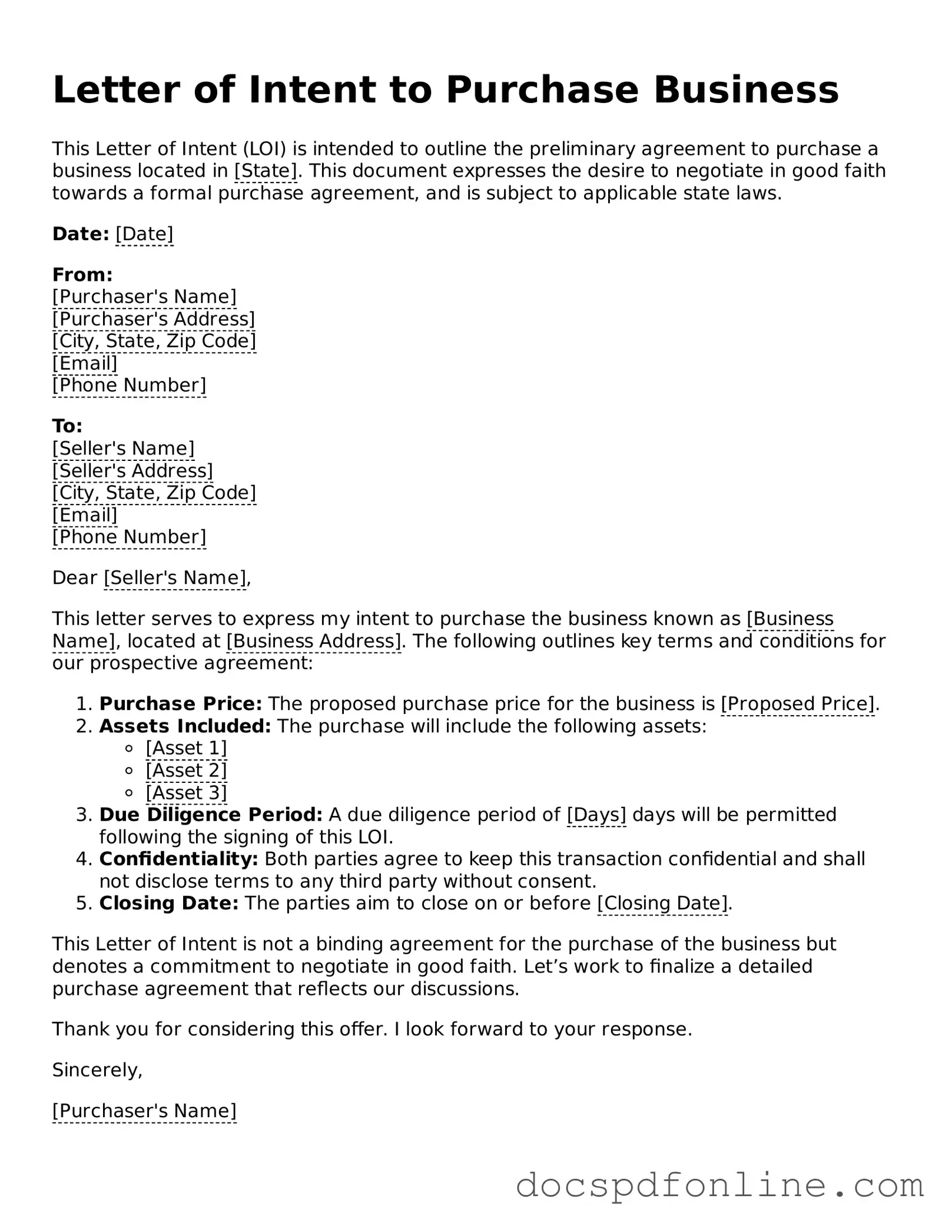Attorney-Approved Letter of Intent to Purchase Business Document
A Letter of Intent to Purchase Business is a document that outlines the preliminary agreement between a buyer and a seller regarding the sale of a business. This form serves as a roadmap for the transaction, detailing key terms and conditions that both parties agree to before finalizing the deal. Understanding this document is crucial for anyone looking to buy or sell a business, as it sets the stage for the negotiation process.
Launch Editor Now

Attorney-Approved Letter of Intent to Purchase Business Document
Launch Editor Now
Save time — finish this form fast
Finish Letter of Intent to Purchase Business online — edit, save, download made easy.
Launch Editor Now
or
↓ PDF File
